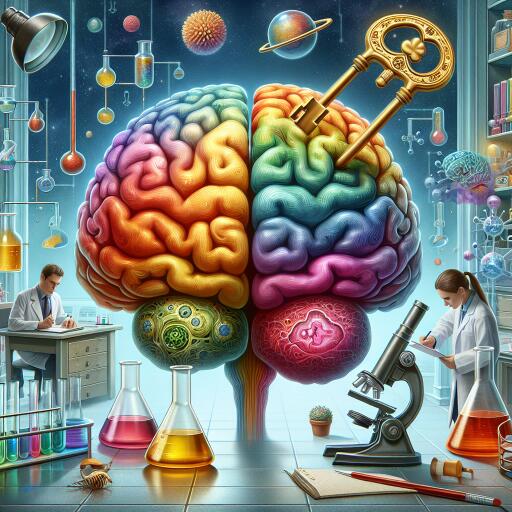Unveiling the Secrets of the Human Brain: A Milestone Study with Far-reaching Implications
A groundbreaking study recently published in Nature Computational Science has edged us closer to deciphering the enigmatic workings of the human brain, with potential repercussions that span from enhancing our understanding of learning and memory to pushing the boundaries of artificial intelligence (AI) development. Spearheaded by Dr. Richard Naud from the University of Ottawa’s Faculty of Medicine, this research delves into the intricate dynamics of how our brain’s neurons respond to various stimuli, a core aspect of what makes learning and adaptive memory possible.
At the heart of this research is an exploration into “response variability” in neurons—essentially, why and how the intensity and frequency of neuron responses change. Neurons, the building blocks of the brain, communicate through electrical and chemical signals, a process that underpins every thought, decision, and memory we have. Dr. Naud and his team have shed light on the role of dendrites, the long, branching structures on neurons that act as the receiving end for synaptic inputs, in modulating this variability.
The study illustrates that while the neuron’s core dictates the intensity of its response, the “variability” of that response is heavily influenced by inputs to its dendrites. This discovery is pivotal, as response variability is a key factor in synaptic plasticity—the brain’s ability to strengthen or weaken connections between neurons over time, a fundamental mechanism of learning and memory.
The intensity of a neuron’s response is controlled by inputs to its core, but the variability of a neuron’s response is controlled by the inputs to its little antennas—the dendrites,
explained Dr. Naud, shedding light on the novel insights his study has brought to the field. Dr. Naud, an Associate Professor in the Department of Cellular and Molecular Medicine and the Department of Physics at the University of Ottawa, alongside his team, has thus expanded our understanding of neuronal response mechanisms.
The journey to these findings began with a hunch that dendrites could play a more significant role in neuronal response variability than previously thought. With the aid of Zachary Friedenberger, a Ph.D. student in Dr. Naud’s lab with a rich background in theoretical physics, the team devised a mathematical framework that incorporated dendrites into neuronal network simulations more effectively.
Friedenberger made quick work of the complex mathematics involved, leading to a theoretical model that, when validated against real-life in vivo recording data, confirmed the team’s hypotheses across a broad spectrum of parameters. He managed to solve the math in a record time and solved a number of theoretical challenges I had not foreseen,
Dr. Naud commends his student’s contributions.
These insights provide a powerful lens through which to view neuronal computation, with implications that go beyond neuroscience. One reviewer of the work emphasized its significance, noting that the theoretical analysis provides key insight into biological computation and will be of interest to a broad audience of computational and experimental neuroscientists.
For the field of artificial intelligence, understanding these neuronal dynamics could unlock new avenues in AI development, potentially leading to more sophisticated and efficient neural networks that mimic the brain’s plasticity and learning capabilities. As AI continues to grow in complexity and application, drawing inspiration from the brain’s innate ability to process and adapt to new information remains a gold standard.
Reference: “Dendritic excitability controls overdispersion” by Zachary Friedenberger and Richard Naud, 27 December 2023, Nature Computational Science.
DOI: 10.1038/s43588-023-00580-6
Dr. Naud’s study is a testament to the power of interdisciplinary research and the endless curiosity that drives scientists to unlock the mysteries of the human brain. With each discovery, we come one step closer to understanding the profound complexities of our own cognition and unlocking the full potential of artificial intelligence. The implications of this work reverberate through the fields of neuroscience, psychology, and computer science, heralding exciting new possibilities for the future.










